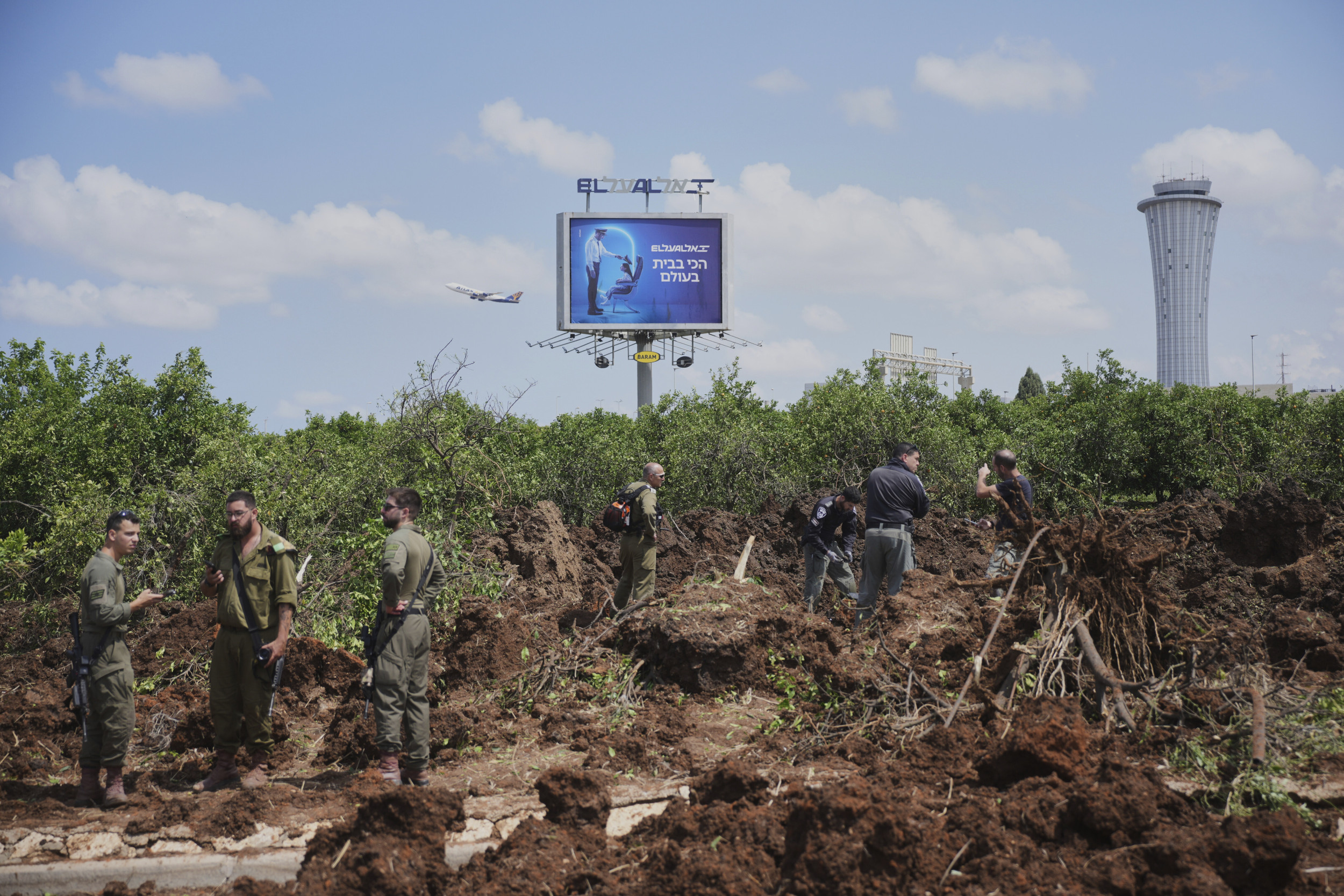
Yemen’s Houthi militant group called on international airlines to halt all flights to Israeli airports, warning that failure to do so could endanger both aircraft and crew, following an attack that disrupted air traffic at Israel’s Ben Gurion Airport.
Newsweek has reached out to Israel’s Prime Minister Benjamin Netanyahu‘s office for comment.
Why It Matters
The attack marks a significant escalation in regional tensions amid the war in Gaza, signaling the Houthis’ growing reach and intent to directly challenge Israel and its allies. The Iran-backed group threats to international air and maritime traffic – despite a sustained U.S. military campaign – draws the Red Sea and Middle East deeper into the conflict zone.
Ohad Zwigenberg/AP Photo
What To Know
The Houthis called upon all international airlines to “to cancel all scheduled flights” to Israeli airports “to preserve the safety of their aircraft and their agents,” the group’s military spokesperson said in a statement.
On Sunday, a missile launched by Yemen’s Houthis struck near Israel’s Ben Gurion Airport, briefly disrupting air traffic. The Israel Defense Forces (IDF) attributed the failure to intercept the projectile to a technical malfunction in its missile defense system.
Flightradar24, a live flight tracking platform, showed flight cancellations continuing into Monday morning and flagged Ben Gurion Airport as one of the most heavily disrupted airports on its global disruption map.
Dozens of such missiles have been intercepted by Israel, according to an IDF statement on X, as the Houthis continue launching attacks in support of Gaza amid Israel’s war and its blockade on humanitarian aid entry. In a separate X post, the IDF shared a map showing widespread warning sirens across the country.
Naval Blockade
The escalation comes as the group intensified efforts to enforce a naval blockade in the Red Sea, targeting Israeli vessels and those potentially supplying Israel through the Red Sea and Bab al-Mandab, the Arabian Sea, and the Indian Ocean.
Last week, a Houthi-affiliated sanctions body warned shipping companies that vessels linked to U.S. arms manufacturers would be “subject to targeting wherever it may be reached by the Yemeni Armed Forces,” the Humanitarian Operations Coordination Center (HOCC) said in an email obtained by Newsweek.
The U.S. military has increasingly launched airstrikes against the group’s target in Yemen and warned Iran against lethal support. Tehran rejected President Donald Trump‘s warning against Iranian support for the Houthis, saying the group operates independently.
What People Are Saying
Houthi Military Spokesperson Yahya Saree, via Telegram: “The Yemeni Armed Forces announce that they will work to impose a comprehensive air blockade on the Israeli enemy by repeatedly targeting airports, most notably Lod Airport, known in Israel as Ben Gurion Airport.”
Israel Defense Force (IDF) on X, translated from Hebrew: “Initial findings indicate that no failure was found in the detection process, operation of the interception and warning systems to the home front. According to the assessment, this was most likely a technical failure in the interceptor that was fired at the missile.”
Israeli Prime Minister Benjamin Netanyahu’s Office on X: “As far as the trade routes, obviously we’re being challenged, the whole world is being challenged by the Houthis, including in the dastardly attack they did today near Ben-Gurion airport. We will not tolerate it. We will take very strong action against them.”
Oman’s Grand Mufti Sheikh Ahmed bin Hamad al-Khalili on X, translated from Arabic: “We salute the heroic commandos of Yemen who have stood true in supporting justice and confronting oppression and tyranny. We congratulate them on the major achievement of targeting the enemy at its most critical centers. Forward, with the success and support of Almighty God.”
What Happens Next
With the Houthis signaling they are not backing down from targeting Israeli-linked assets, Israel has vowed strong retaliation against the group and its Iranian backers. Iran’s Defence Minister Aziz Nasirzadeh Tehran would strike back if the U.S. or Israel attacked.
